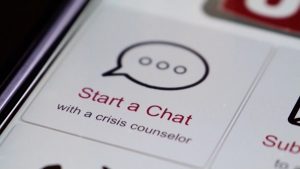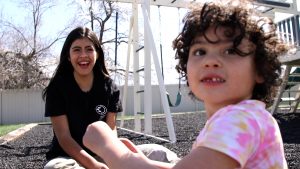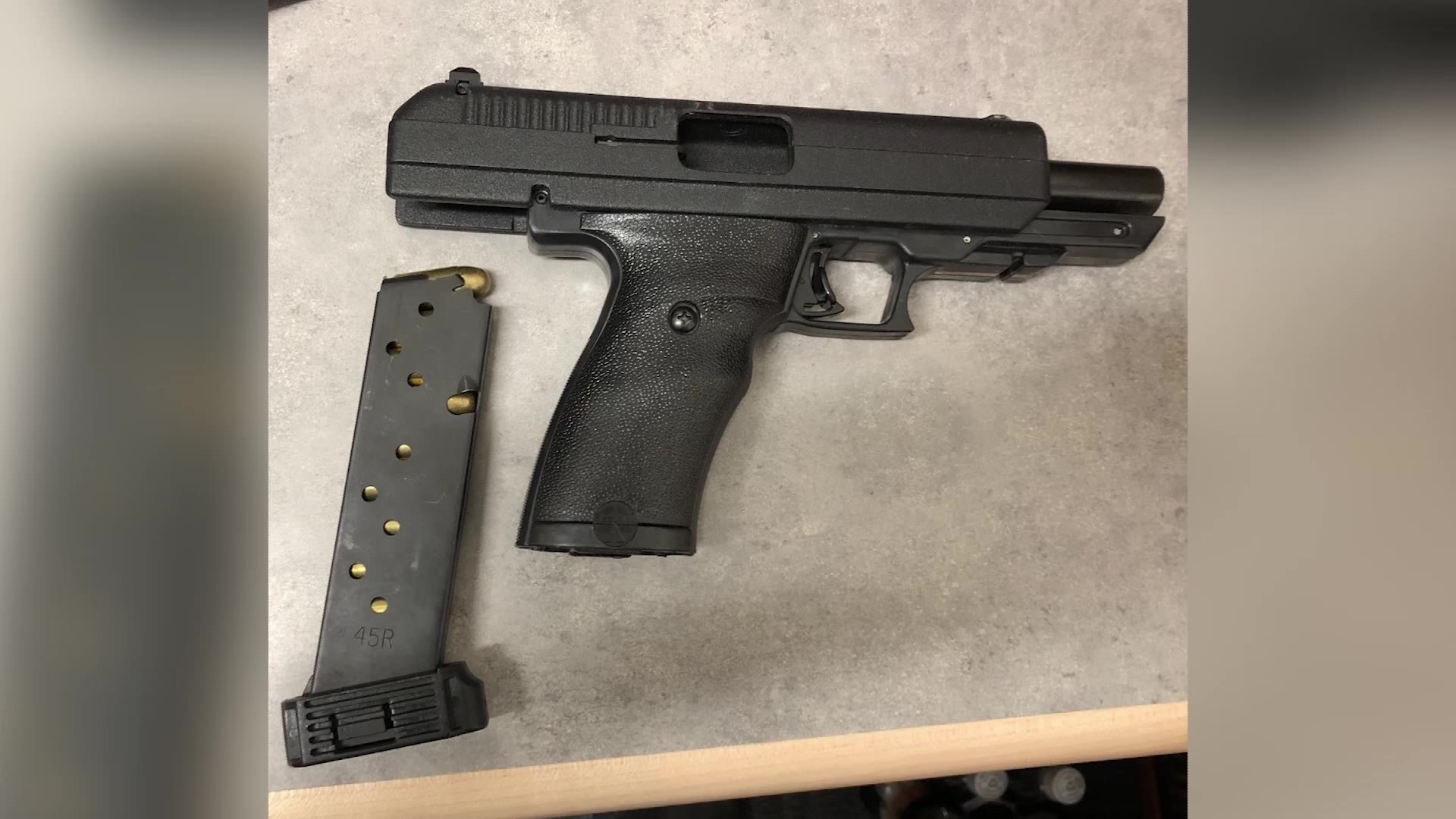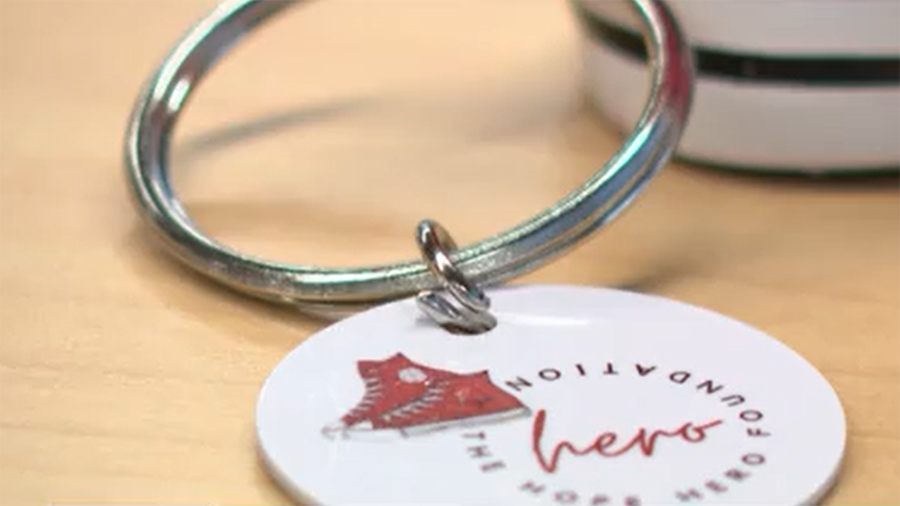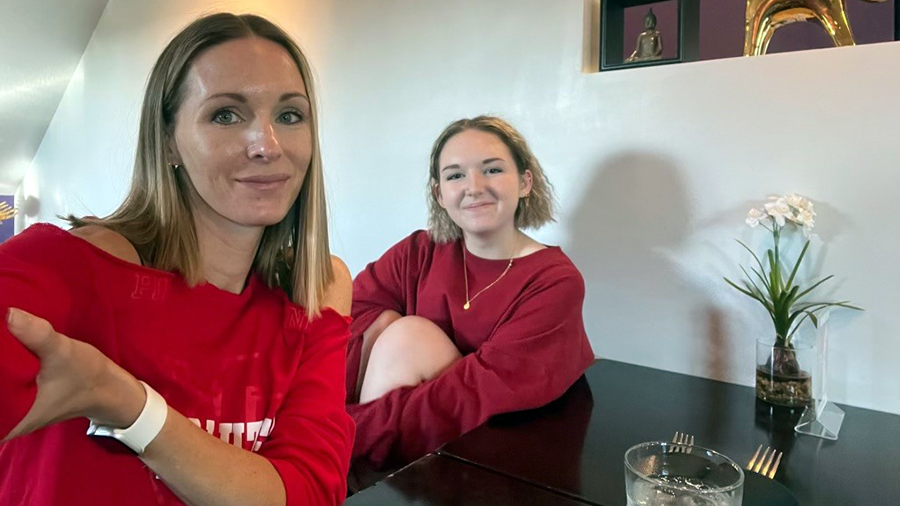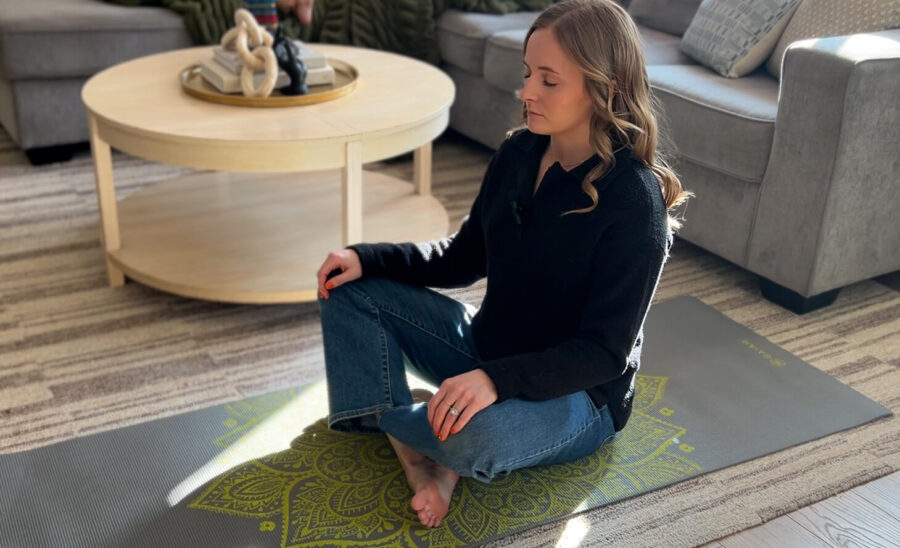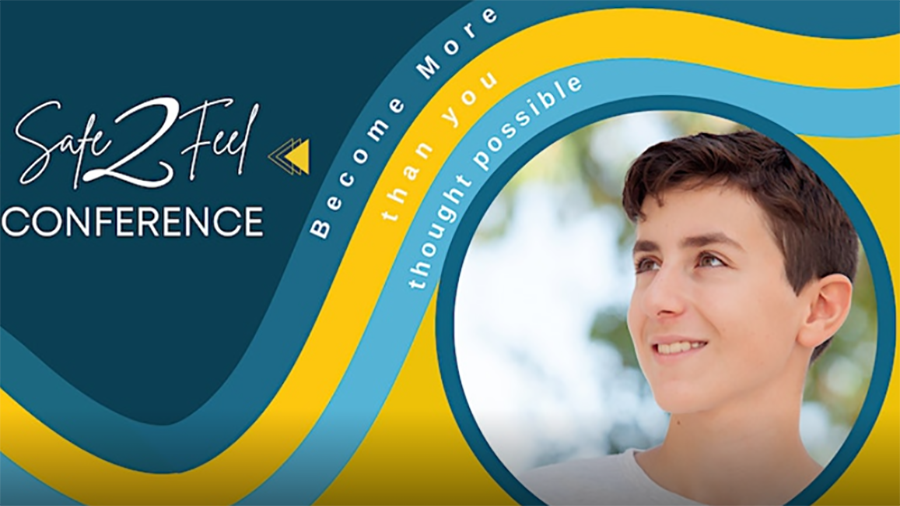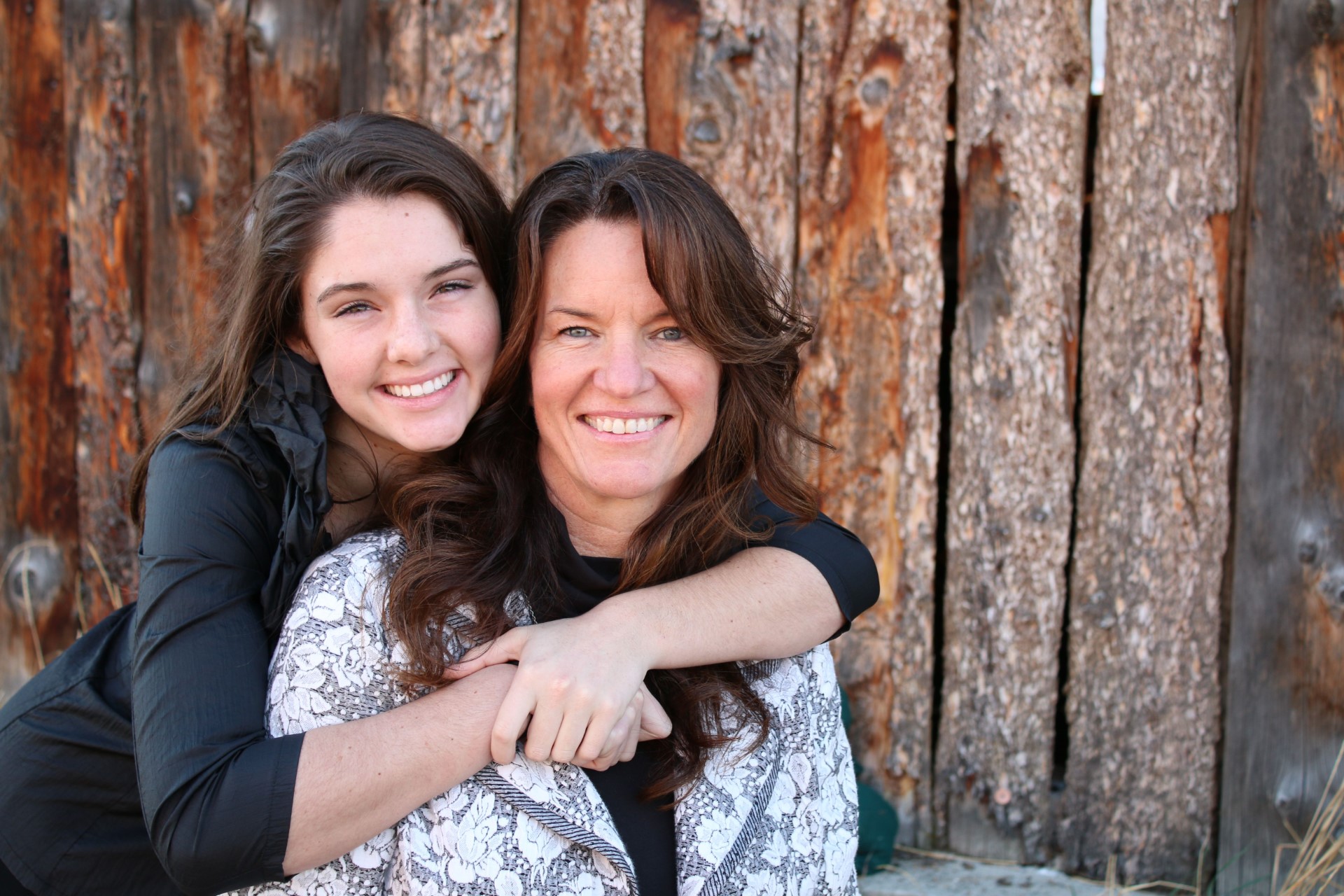Bridging the treatment gap: Solutions for families waiting to connect a teen with a therapist
May 19, 2022, 9:40 PM | Updated: May 20, 2022, 11:09 am
SALT LAKE CITY – Worsening mental health among teenagers prompted the American Academy of Pediatrics to declare a national emergency.
Mental health concerns among adolescents saw a steady rise between 2010 and 2020 – and the pandemic only intensified the crisis.
A year into the pandemic, the Huntsman Mental Health Institute found that 40% of Utahns saw an increase in anxiety and depression with 8 out of 10 children reporting those very symptoms.
The average wait for a mental health care provider for a new patient referral in Utah is between two to six months. But experts say there are tools available to help bridge the treatment gap.

An artist rendering of the Kem and Carolyn Gardner Mental Health Crisis Care Center scheduled to open in 2024. (Photo courtesy HMHI)
Waiting months for care
Monica Lopez and her 12-year-old daughter Valentina know that wait all too well. They started their search for a therapist in January. The first available appointment was in April.
“Valentina expresses herself very well and at one point she stopped expressing herself,” Monica Lopez said. “I could just tell something wasn’t right. She even started to look different, she became more pale and she didn’t eat as much.”
Lopez said she recognized the same signs of depression she saw in her daughter four years earlier.
“We had some heartbreaks in our lives and especially with her dad leaving her home at an early age,” she said.
That event took a toll on Valentina’s mental health and at just 8 years old she got professional help.
“I was angry a lot of that time,” Valentina said. “After two months of therapy, I got a lot more happy.”
Lopez felt that short stint of therapy worked for her daughter, who started smiling, laughing, and enjoying life again. But that all changed two years later when the pandemic hit.
“She couldn’t go out she couldn’t hang out with her friends that much so that literally took a hit for all of us,” Lopez said.
Valentina began to isolate and disassociate. She felt that no one around her could understand what she was going through, including her family.
“It’s just hard when they ask, ‘Are you okay’ and I’m not but I can’t explain why I’m not,” she said. “I was shocked when my mom asked if I was suicidal, like how does she know?”
The family did not waste time seeking help. Lopez saw an ad for a free mental health clinic for families and teenagers.
“I called them right away to make an appointment. But it took like three months to see the actual therapist,” she said.
It was a frustrating time for Lopez as she watched her daughter sink deeper.
“She was feeling hopeless, and I was feeling hopeless too,” Lopez said.
Immediate help is available
Jessica Holzbauer, a licensed clinical social worker with the Huntsman Mental Health Institute says what Lopez and her daughter experienced is standard right now.
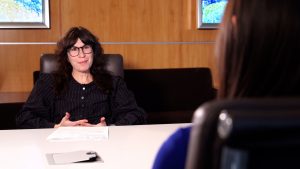
Jessica Holzbauer, a licensed clinical social worker with the Huntsman Mental Health Institute shares resources families can use to bridge the treatment gap. (Photo: Josh Szymanik, KSL TV)
“We used to talk about waits being weeks but now we talk about it being months,” Holzbauer said. “The need is so great because people have not been able to get in to see an outpatient provider because they don’t have openings so there is a trickledown effect where then kids who need a higher level of care, are sicker than we’ve ever seen them before.”
Holzbauer believes the children who got hit the hardest by the pandemic are ones who had a predisposition for depression.
“Kids who struggled already with depression and whose go-to was to isolate or withdraw, that just exasperated the issue,” Holzbauer said.
While the wait for a mental health care provider can be discouraging for parents, Holzbauer said there are resources available right now.
The most underutilized one is using a primary care physician to connect with a therapist.
“There are fantastic short-term therapists who are in community clinics who can see the adolescents who are struggling,” she said.
She also encourages parents to reach out to their child’s school counselor.
In an emergency, reach out to a same-day clinic.
“We also have a same-day clinic as well here at the university for people who need heightened psychiatric care, where they can meet with a physician that day,” Holzbauer said.
She also points to the SafeUT app where kids and teens can connect with a mental health counselor via text. The app provides immediate help in the palm of a child’s hand, no wait required.
“Not many adolescences want to call and pick up the phone, so [texting] is a great option,” she said.
In 2021, 30,527 total chats and tips were received through the app and 298 life-saving interventions were initiated, said Holzbauer.
To combat the crisis, she said the institute is expanding resources with hiring and infrastructure.
“I am very hopeful that the wait it is going to get shorter,” she said.
The institute will be opening the Crisis Care Center in Salt Lake City in 2024. The $47 million facility will have a wing dedicated to adolescent mental health.
A facility children like Valentina would benefit from.
Although the family had to wait for care, they’re glad they got Valentina life-saving treatment when they did.
Since starting weekly sessions with a therapist in April, Lopez said she has already seen an improvement in her daughter’s mental health.
“I want Valentina to be happy. I want her to know that she can be successful, and she can be great in everything she does,” she said.
Suicide prevention resources
If you or someone you know is experiencing suicidal thoughts or exhibiting warning signs, call the National Suicide Prevention Lifeline at 1-800-273-TALK (8255) or the Utah Crisis Line at 1-800-273-8255, which is answered 24/7/365 by crisis counselors at Huntsman Mental Health Institute.
You can also text TALK to 741741 and parents, students, and educators can download the SafeUT app chat or call 833-3SAFEUT to connect with a licensed crisis counselor.
Additional resources
- Parents, students, and educators can download the SafeUT app chat or call 833-3SAFEUT to connect with a licensed crisis counselor.
- First responders, including firefighters, law enforcement, EMS, and healthcare professionals, can chat with a crisis counselor at no cost 24/7/365 by downloading the SafeUT Frontline app and members of the National Guard can access help through the SafeUTNG app.
- For non-crisis situations, when you need a listening ear as you heal and recover from a personal struggle, call the Utah Warm Line at 1-833 SPEAKUT 8:00 a.m.-11:00 p.m., 7 days a week, 365 days a year.
- At Huntsman Mental Health Institute, women can access maternal mental health services including birth trauma, pregnancy loss, infertility, and perinatal mood and anxiety disorders.
- LiveOnUtah.org, a campaign by the Utah Suicide Prevention Coalition offers suicide prevention training and has resources for faith-based groups, youth, LGBTQ+, and Employers.



